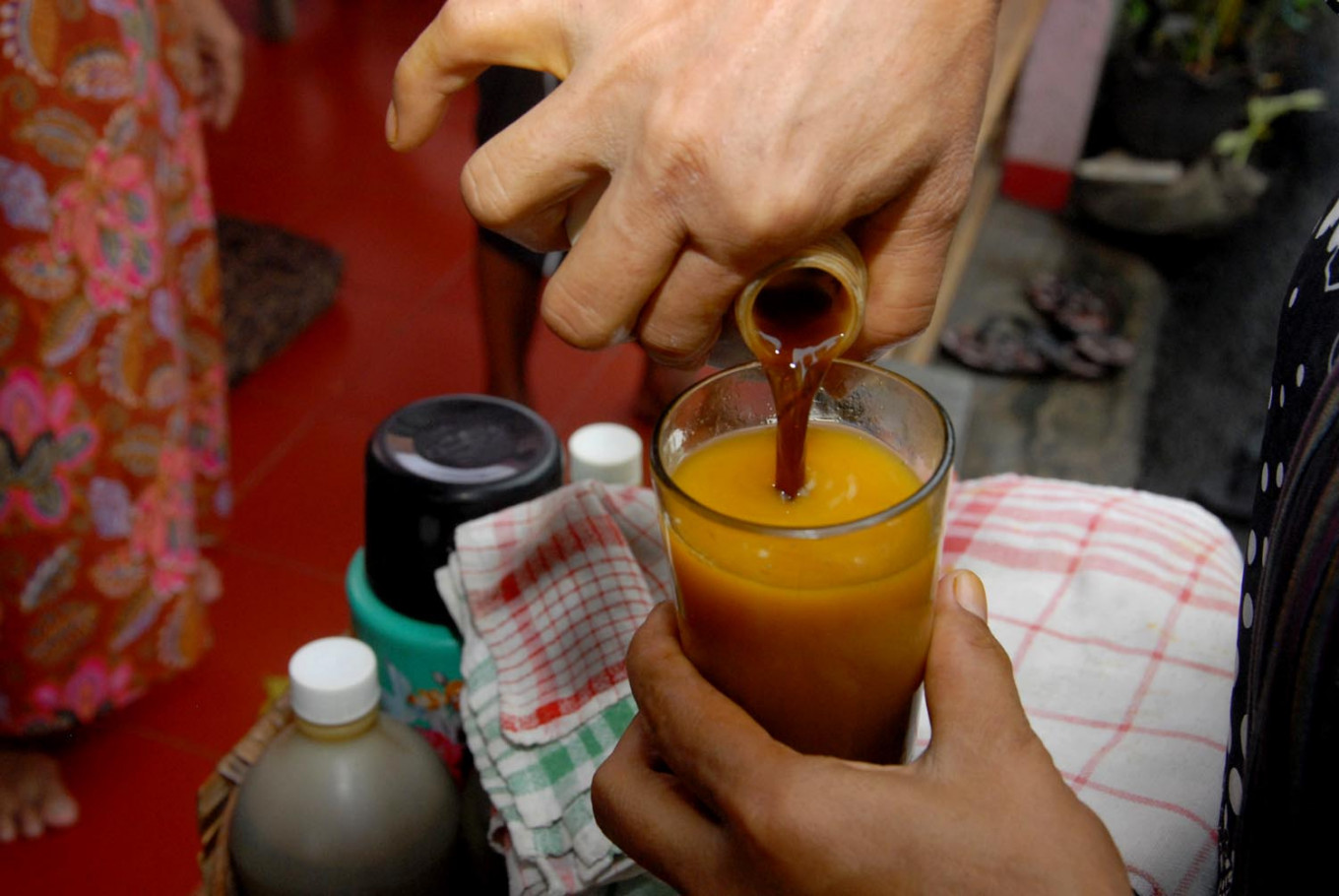Popular Reads
Top Results
Can't find what you're looking for?
View all search resultsPopular Reads
Top Results
Can't find what you're looking for?
View all search resultsRush for 'jamu' helps protect cultural heritage
In Indonesia, demand for jamu elixirs surged as people try to boost their immune system in an attempt to fend off the virus.
Change text size
Gift Premium Articles
to Anyone
N
ot many people are aware that April 18 is celebrated annually as International Day of Monuments and Sites, popularly known as World Heritage Day. The observance began in the early 1980s, driven by two large cultural organizations, the International Council on Monuments and Sites (ICOMOS) and the United Nations Educational, Scientific and Cultural Organization (UNESCO).
This year, the theme Shared Culture, Shared Heritage and Shared Responsibility’ is timely to highlight our shared cultural tradition in Southeast Asia that can address socio-economic issues, especially amid the COVID-19 pandemic.
Shared heritage is commonly defined as property carrying historical, cultural or even religious importance for one or more societies in different countries. These are the properties that embody shared bonds and identities between several nationalities.
The term encompasses various intangible heritage assets, such as historic buildings and archaeological sites, cultural practices and artefacts. In the past, heritage became shared due to wars and colonial occupations. Nowadays, it is more attributed to the dynamic pace of globalization leading to higher migration rates, growing diasporas, more accessible travel, as well as widespread use of social media. There is more people interaction online and offline.
The propagation of culture and heritage to many other parts of the world may have blurred the “ownership” of a particular object, which could even lead to disputes in responsibility over its conservation. However, opportunities lie behind these challenges. The conservation of a shared heritage should be viewed as one of the approaches to strengthen dialogue among nations driven by the need to safeguard collective identity and historical narratives considered important to several societies. Furthermore, it should also be viewed as a form of capital to promote economic and social growth.
The COVID-19 outbreak has inadvertently revived a long-standing cultural tradition that is insofar pushed aside, namely the herbal drink culture. It is an ancient healing remedy that has been passed down through generations by using a concoction of herbs and spices, such as roots, leaves, flowers and bark. The herbal drink is believed to have the power to boost our immune system, cure a variety of illnesses and maintain beauty.
The medicinal elixirs come in a variety of mixtures depending on the society’s traditional knowledge: It is known as jamu in Indonesia, Malaysia, Singapore and Brunei Darussalam, salabat in the Philippines or bondol-pich in Cambodia.
Through whichever alloy, herbal drinks are an inherent part of Southeast Asian culture, while continuously reminding us of our collective identity, local wisdom as well as regional bonds underlined by the richness of herbs resources in the region and the shared history of space trade.
Read also: ‘Jamu gendong’ in spotlight amid virus outbreak
In the backdrop of the COVID-19 pandemic, the herbal drink culture is surprisingly becoming more popular. In Indonesia, demand for jamu elixirs surged as people try to boost their immune system in an attempt to fend off the virus.
All of a sudden, empon-empon, a mixture of curcuma, ginger, lemongrass, turmeric and cinnamon, has emerged on people’s daily menu to complement healthy eating and vitamins.
In Malaysia, people are stocking up on dried herbs like dried yam, red jujube dates and dried longan to be made as herbal soups, while many people in Myanmar are resorting to drinking ginger tea as an attempt to boost their immunity.
Given the benefit of herbal drinks, governments of Southeast Asian countries could jointly consider nominating the herbal drink culture as a regional heritage. The second article of the ASEAN Declaration points out the need to accelerate economic growth, social progress and cultural development in the region through joint endeavors in the spirit of equality and partnerships. Thus, recognition of the herbal drink culture can help boost economic progress and shared cultural identity.
Once the discourse of herbal drink culture can been further explored, stakeholders mapped and safeguarding strategies devised, Citizens of Southeast Asian governments ASEAN should also propose inscribing the it herbal drink culture in the UNESCO Intangible Cultural Heritage list as a multinational nomination to formalize and advance regional collaboration.
Further, promoting the tradition of herbal drinks will lead to increased demand for herbs and spices, as we have seen in this pandemic, consequently enhancing the livelihood of smallholders, particularly herb and spice growers.
According to the UN Food and Agricultural Organization, the cultivation of spice and herb plants can be produced with very little cash, labor and land. These are ideal crops to be integrated into small-scale farming systems and are also suitable for smaller garden production. In Indonesia, most herbal drink producers and sellers are women, thus conservation of the herbal drink culture can help foster equal opportunities for women.
In short, the collective safeguarding of the herbal drink tradition at the regional level will create a ripple effect on the health and wellbeing of consumers, the prosperity of smallholders across the region, job creation and women empowerment. These are in line with several targets under the global Sustainable Development Goals.
What connected us in the past should be viewed as a basis for cooperation for the present and in the future. Shared heritage entails shared responsibility. Let us use World Heritage Day as an opportunity to remind people in Southeast Asia that our shared herbal drink culture is a testimony of our historical links and shared cultural roots.
Moreover, let us treat this tradition as another invaluable Southeast Asian cultural asset that we can offer to the world. As shared heritage entails shared responsibility, we hope that the rising popularity of herbal drink culture leads to a collective responsibility to safeguard this healthy tradition for generations to come.
Happy World Heritage Day to people in Southeast Asia!
______
Cultural heritages specialist, member of International Council on Monuments and Sites (ICOMOS) Indonesia and International Association of World Heritage Professionals (IAWHP). The views expressed are her own.










